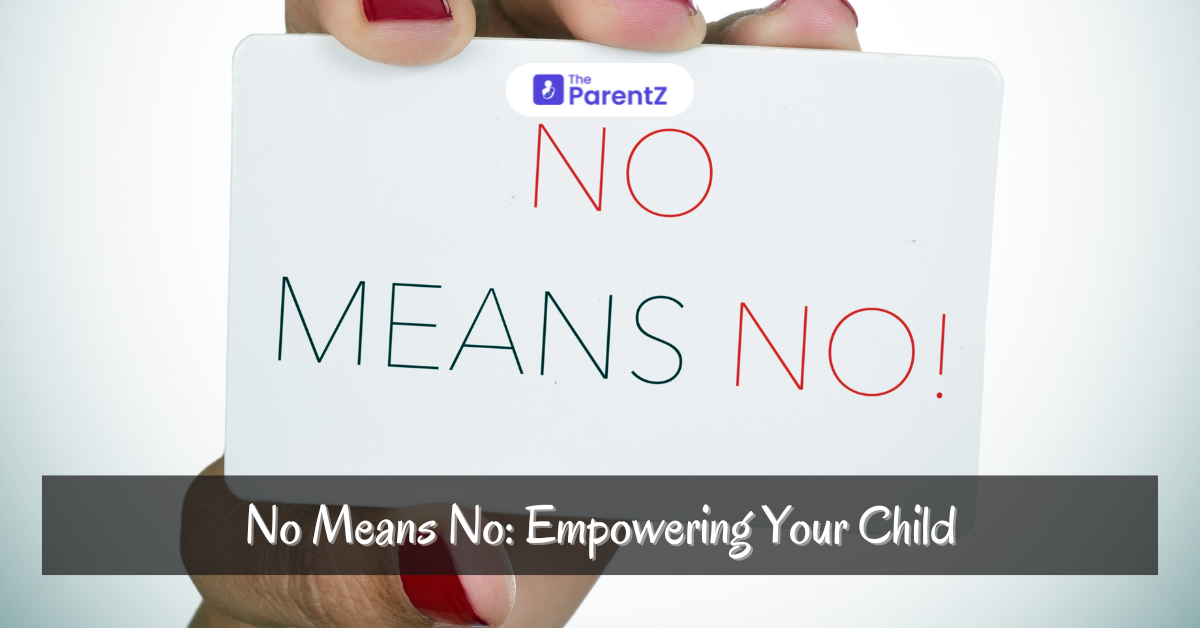The chilling echoes of the Kolkata case, a stark reminder of the world we live in, underscore a truth that is often overlooked: the importance of teaching our children about personal space and the power of saying "no." In a society grappling with an alarming rise in cases of assault and harassment, we must equip our children with the tools to protect themselves. This starts with instilling in them the fundamental right to say "no" without fear or guilt.
"No means no." It's a simple phrase, yet it carries the weight of a world. It's a complete sentence in itself, demanding respect and understanding. While we often find ourselves struggling to set boundaries as adults, it's crucial to recognize that these skills begin to form in childhood. By teaching our children the importance of personal space and the right to say "no," we are not just preparing them for the world but empowering them to shape it.
Understanding Personal Space
Personal space is an invisible boundary that surrounds each of us. It's a zone of comfort where we feel safe and secure. Teaching children to respect their own space and that of others is foundational. It's about recognizing when someone is too close, when touch feels uncomfortable, and when it's okay to say, "I need some space."
Start early. Use simple language to explain that everyone has a personal bubble and that it's important to respect it. Try to role-play different scenarios, such as being in a crowded room or playing with friends. Discuss how to politely move away or ask someone to give them space.
The Importance of "No Means No"
The ability to say "no" is a fundamental skill that empowers children. It is not merely a word but a complete sentence that conveys their feelings and boundaries.
"No Means No. 'Na' Sirf Ek Shabd Nahi.. Apne Aap Mein Pura Vakya Hai (Source: Movie; Pink, 2016)" emphasizes that "no" should be understood as a definitive statement, not requiring justification. Children must learn that their comfort and safety are paramount, and they have the right to refuse any situation that makes them uncomfortable.
The Power of "No"
Saying "no" is a skill that needs to be nurtured. It's about teaching children that their bodies belong to them and that they have the right to decide what happens to them. It's about empowering them to trust their instincts and to speak up when they feel uncomfortable.
Begin by validating your child's feelings. If your child says "no" to a hug or a kiss from a relative, respect their decision. Explain that it's okay to feel uncomfortable and that their feelings are important.
Practice saying "no" in different situations. Role-play scenarios where they might feel pressured to do something they don't want to do. Help them develop assertive language, such as "No, thank you," or "I'm not comfortable with that."
Disrespect vs. Boundaries
It's essential to draw a clear line between disrespect and setting boundaries. Disrespect involves hurting someone's feelings intentionally while setting boundaries is about protecting one's own well-being.
Teach your child the difference between being assertive and being aggressive. Assertiveness is about expressing your needs and feelings clearly and respectfully, while aggression involves hurting or intimidating others.
Encourage open communication. Create a safe space where your child can come to you with any concerns or questions. Listen attentively without judgment and offer support and guidance.
Things to Avoid
- Shaming or blaming: If your child makes a mistake, approach the situation with empathy and understanding. Avoid making them feel guilty or ashamed.
- Overprotectiveness: While protecting your child is important, it's equally important to empower them to make their own decisions.
- Ignoring their feelings: Always validate your child's emotions, even if you don't understand them fully.
Conclusion
Teaching children about personal space and the power of "no" requires patience, consistency, and open communication. By building a safe and supportive environment, we empower our kids to navigate the complexities of the world with confidence and resilience. Remember, "no" is not just a word; it's a shield, a boundary, and a declaration of self-worth.








Be the first one to comment on this story.